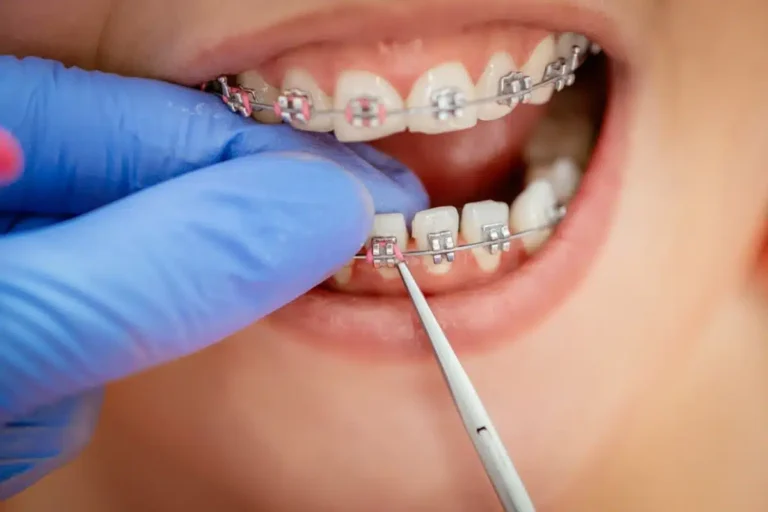How Smoking and Coffee Affect Teeth Whitening Results in Colorado Springs
Teeth whitening is one of the most popular cosmetic dental treatments in Colorado Springs, where residents value healthy, confident smiles. Whether you’ve had a professional in-office whitening session or used a take-home kit prescribed by your dentist, maintaining those bright results requires proper care.
However, two common habits—smoking and coffee consumption—can significantly affect how long your whitening results last. The city’s coffee culture and lifestyle habits make understanding their impact especially important.
Here’s how smoking and coffee influence teeth whitening results in Colorado Springs and what you can do to protect your smile.
The Whitening Process and Its Sensitivity to Stains
Teeth whitening treatments work by using bleaching agents, such as hydrogen peroxide or carbamide peroxide, to break down stains on the enamel and lighten the natural color of the teeth. After teeth whitening in Colorado Springs, CO, the enamel becomes temporarily more porous, making it more susceptible to staining. This means that what you consume in the first 48 hours after treatment can make or break your results.
Colorado Springs dentists often refer to this as the “white diet period,” during which patients should avoid anything that could discolor the enamel—including smoking and dark beverages like coffee.
How Coffee Affects Teeth Whitening Results
Coffee is a favorite beverage among Colorado Springs residents, especially during cold mountain mornings. Unfortunately, it’s also one of the leading causes of tooth staining. Coffee contains tannins—natural compounds that can cause color pigments to stick to the enamel. These pigments gradually penetrate the enamel’s porous surface, leading to yellow or brown discoloration.
After whitening, the enamel is particularly vulnerable. Even a single cup of coffee during the first 24–48 hours can leave stains that are hard to reverse. Regular coffee drinkers may also notice that their teeth start losing brightness faster than non-coffee drinkers. If you can’t give up coffee entirely, dentists in Colorado Springs recommend drinking it through a straw to minimize contact with the teeth.
Additionally, rinsing your mouth with water or brushing afterward can help reduce staining. Switching to lighter-colored drinks such as green tea or herbal tea can also help maintain your whitening results.
The Role of Acidity in Coffee Stains
Coffee’s acidity is another factor that impacts whitening results. Acidic beverages can soften the enamel, making it easier for pigments to penetrate the surface. Over time, this weakens the enamel and increases sensitivity. Colorado Springs’ higher altitude and dry climate can already contribute to dry mouth, which reduces saliva’s natural ability to wash away acids and stains.
Drinking plenty of water after your morning coffee not only keeps you hydrated but also helps neutralize acidity and protect your enamel.
How Smoking Affects Teeth Whitening Results
Smoking is one of the most damaging habits for oral health and cosmetic appearance. The tar and nicotine in cigarettes, cigars, and vaping products cause deep, stubborn stains that whitening agents can only temporarily reduce.
When nicotine combines with oxygen, it turns yellowish, which clings to the enamel and creates discoloration. Tar, on the other hand, is a sticky substance that quickly adheres to tooth surfaces, gums, and even dental restorations.
In Colorado Springs, where the dry mountain air can already make the mouth more prone to dryness, smoking worsens the issue by reducing saliva production. Saliva is essential for washing away food particles and neutralizing acids. A dry mouth accelerates staining and creates an environment where discoloration becomes more noticeable and harder to remove.
The Chemical Impact of Smoking on Teeth
Smoking not only stains the enamel but also alters the chemical balance in your mouth. It increases bacterial growth, leading to plaque buildup, gum inflammation, and bad breath. Over time, this can cause uneven coloring, where plaque and tartar accumulate and darken despite whitening treatments.
Dentists in Colorado Springs often note that smokers require more frequent cleanings and touch-up whitening sessions to maintain their results.
Short-Term vs. Long-Term Effects of Coffee and Smoking
In the short term, both coffee and smoking can quickly dull the results of professional whitening. Within just a few weeks, regular exposure to these stain-causing agents can undo much of the whitening effect. In the long term, the damage becomes more permanent.
Deep stains from smoking often settle into the inner layers of the teeth (the dentin), where even strong whitening treatments struggle to reach. Similarly, years of coffee consumption can lead to internal discoloration, giving teeth a darker or uneven tone that whitening alone cannot fix.
Tips for Coffee Drinkers in Colorado Springs
Completely avoiding coffee may not be realistic, but you can take steps to reduce its effects.
- Use a straw: This limits contact between coffee and your teeth.
- Drink water alongside coffee: Rinsing helps wash away pigments before they settle.
- Brush 30 minutes after coffee: Immediate brushing can be abrasive; waiting allows enamel to re-harden.
- Choose a lighter roast: Lighter coffee roasts contain fewer staining compounds than dark ones.
Local dentists often suggest switching to iced coffee and using a straw, especially in the first few days after whitening. You can also consider using whitening touch-up pens or customized trays recommended by your dentist for maintenance.
Tips for Smokers in Colorado Springs
If you smoke, quitting is the best way to preserve both your oral and overall health. However, if quitting isn’t immediate, reducing the number of cigarettes and practicing better oral hygiene can help minimize damage.
- Rinse after smoking: Use a gentle mouthwash or water to remove surface residues.
- Schedule regular dental cleanings: Professional cleanings remove tar and nicotine buildup.
- Use an electric toothbrush: It’s more effective at scrubbing away superficial stains.
- Consider fluoride treatments: They strengthen enamel weakened by smoke exposure.
Local dental professionals also recommend fluoride varnishes and polishing treatments to restore luster and slow re-staining.
Combining Whitening with Lifestyle Adjustments
Colorado Springs dentists often emphasize that teeth whitening should go hand in hand with lifestyle adjustments. The city’s coffee culture and outdoor lifestyle make hydration, oral hygiene, and routine dental visits essential.
Drinking more water, chewing sugar-free gum, and eating crunchy fruits like apples or pears can help naturally clean your teeth and prevent stains. Scheduling touch-up whitening treatments every six months to a year can also keep your smile bright and healthy.
Final Thoughts
In Colorado Springs, where coffee shops are plentiful and outdoor living is part of daily life, maintaining a bright, white smile requires balance and awareness. Both smoking and coffee have powerful staining effects that can quickly dull your whitening results if left unchecked. By understanding how these habits interact with your teeth and following smart maintenance strategies, you can enjoy a radiant smile that lasts. Partnering with a trusted local dentist ensures personalized advice and professional care tailored to your lifestyle, helping your whitening results stay as brilliant as the Colorado sunshine.







